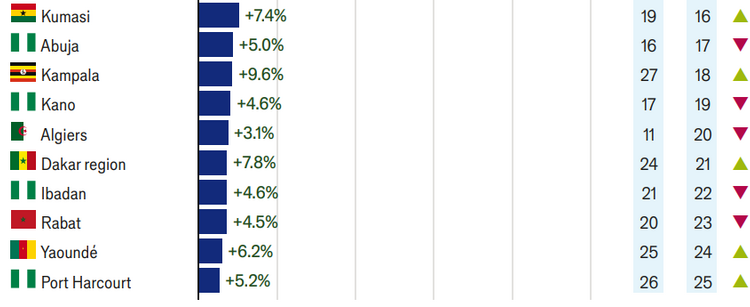Why are cities so important to countries? They are the heartbeats of countries, driving everything from the economy to culture. In many ways, a country’s future is closely linked to the vitality and sustainability of its cities.
All of these different factors can either boost a country’s success or drag it down.
According to the Economist Intelligence Unit, by mid-2030s, Africa’s top 100 city economies will be home to nearly 400 million people, about 21% of the continent’s population. These cities will generate over 60% of Africa’s GDP.
The continent’s major urban centres—Cairo, Lagos, and Johannesburg—will lead Africa’s top 100 city economies by 2035. Collectively, the largest 20 city economies, which include megacities and rapidly growing middleweights, will dominate almost 70% of the Africa100 GDP (measured in 2020 prices and exchange rates) in 2035.
These cities will be hubs of commerce, trade, and industry, boasting dynamic consumer markets, advanced commercial networks, and strong industrial and import-export sectors.
However, with all this growth come significant challenges. Cities will have to contend with overcrowding, informal housing, high unemployment, underdeveloped public services, stretched utilities, and the growing threat of climate change.
While this is a common issue, some cities will be impacted more severely than others.
Below are the top 10 African cities with the lowest GDP projection in 2035:










